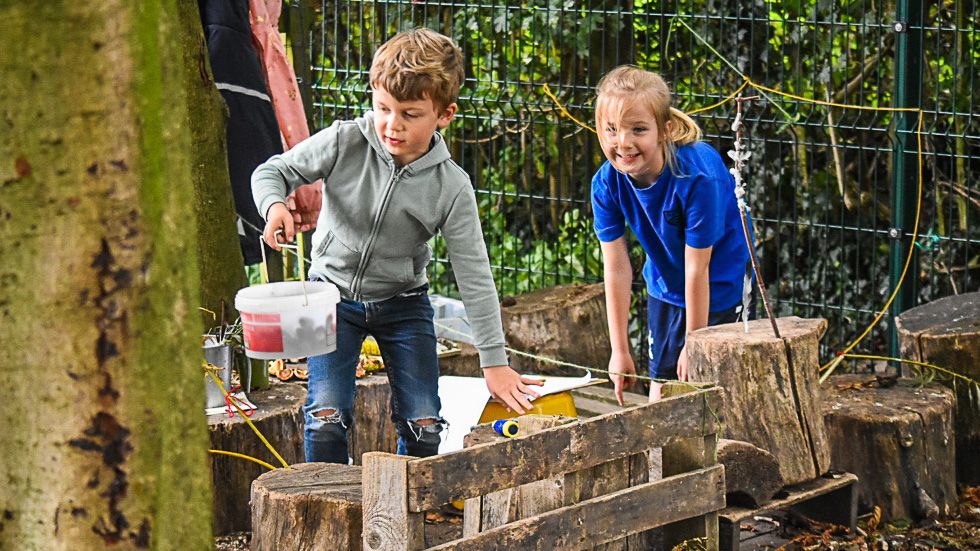Science will play a key part of the curriculum through your child’s entire school career. At Clare Community Primary School, we work hard to develop your child’s scientific knowledge and understanding through exploring our abundant outdoor space.
This journey begins in the Foundation Stage. Children at Clare Community Primary School use the outdoor area and learning syllabus such as Nature Detectives to explore, problem solve, observe, predict, think, make decisions and talk about the world around them.
Children are encouraged to ask questions about why things happen and how things work. Your child will also be asked questions about what they think will happen to help them communicate, plan, investigate, record and evaluate findings. They will also learn to recognise changes that happen to the body when they are active. Children will also learn about the importance of keeping healthy and the things that contribute to this.
Science at Key Stage 1
Throughout Key Stage 1 science lessons, children at Clare Community Primary School will be learning about the importance of asking questions, gathering evidence, carrying out experiments and looking at different ways of presenting their results. Lessons are practical, focusing on the world around them. We are lucky to have excellent outdoor learning facilities in the form of the gazeebo, funded through the Clare PTFA and local businesses within Clare, use of Clare Country Park, and our nature and quiet areas including our new wellbeing area. We are able to use these areas to enhance our learning through practical investigations and observations.
Science at Key Stage 2
In Lower Key Stage 2, children are encouraged to ask questions about scientific concepts and then carry out investigations to find out the answers. As children enter Upper Key Stage 2 children will continue to practise these skills but with more depth and precision.
In Lower key Stage 2, children learn how to set up scientific investigations. They begin to take measurements from a range of equipment. Children begin to gather and record data and report their findings orally and in writing. Children are taught to understand what variables are and how to control them. In Upper Key Stage 2, children are given opportunities to take measurements from a range of equipment, understanding the need for repeated measures to increase accuracy. They begin to gather and record data using labels, classification keys, tables, scatter graphs, bar and line graphs. Children use test results to make further predictions to set up further comparative and fair tests, and make conclusions on the test carried out, orally and in writing.
Across Key Stages 1 and 2, children will be taught their Science, primarily, through the ‘Switched on Science’ scheme of learning. However, In Clare Community Primary School we enhance this learning through the use of video material on TigTag World and resources found in the ‘Primary Science Curriculum Progression’ document. Every year, we further enhance our school wide science curriculum by celebrating science in STEM week (usually in March every year). Here we encourage local experts into school to deliver workshops and activities to further the children’s learning.

